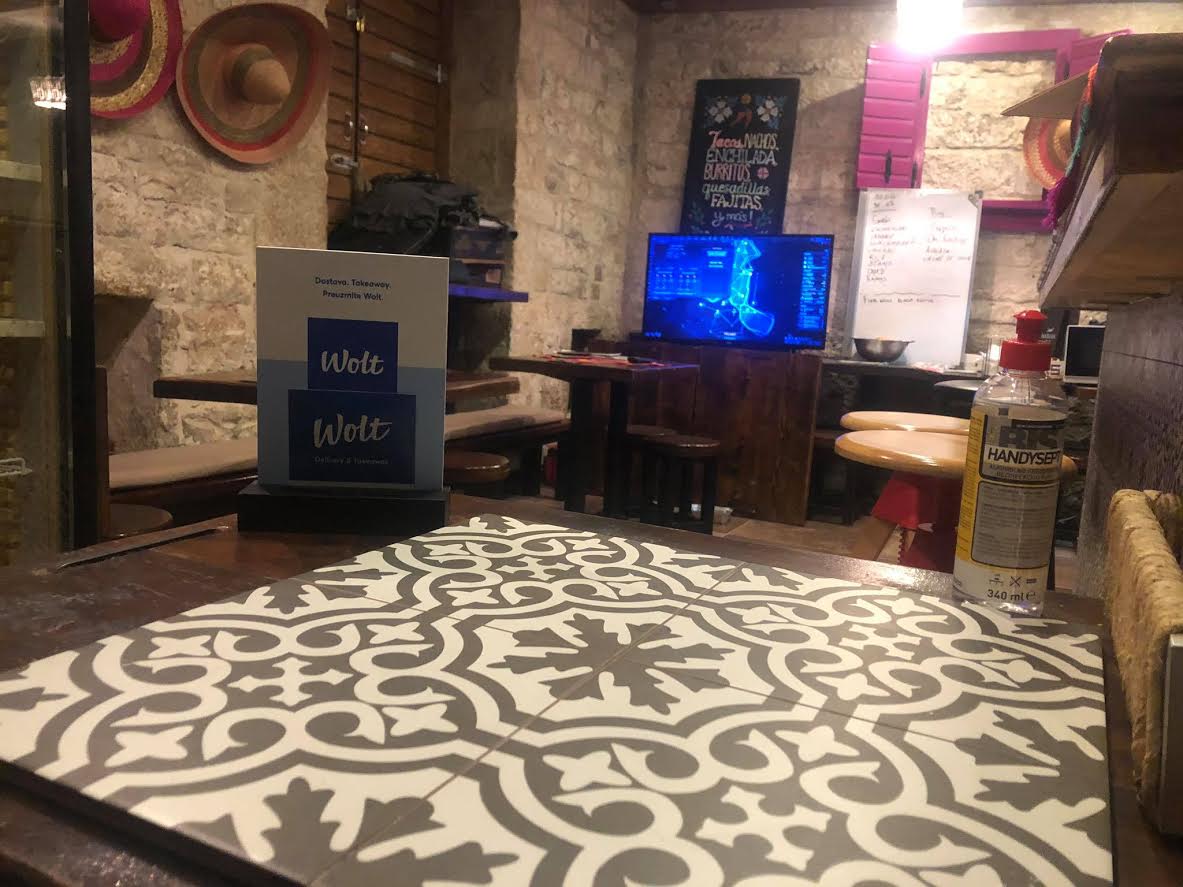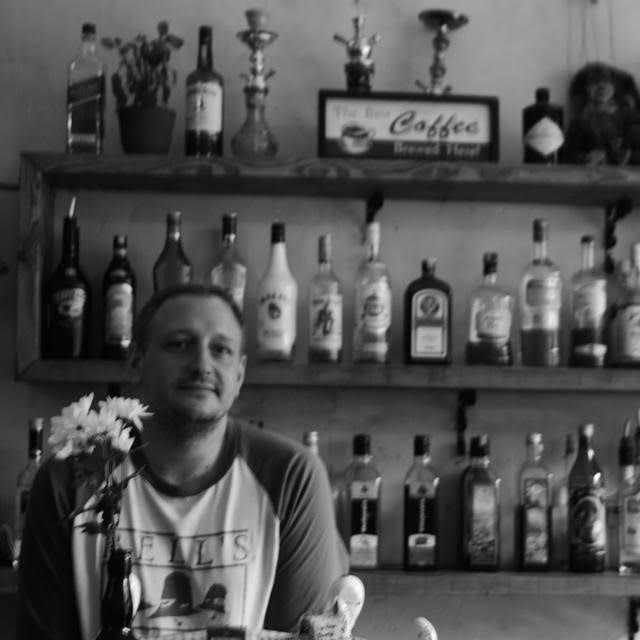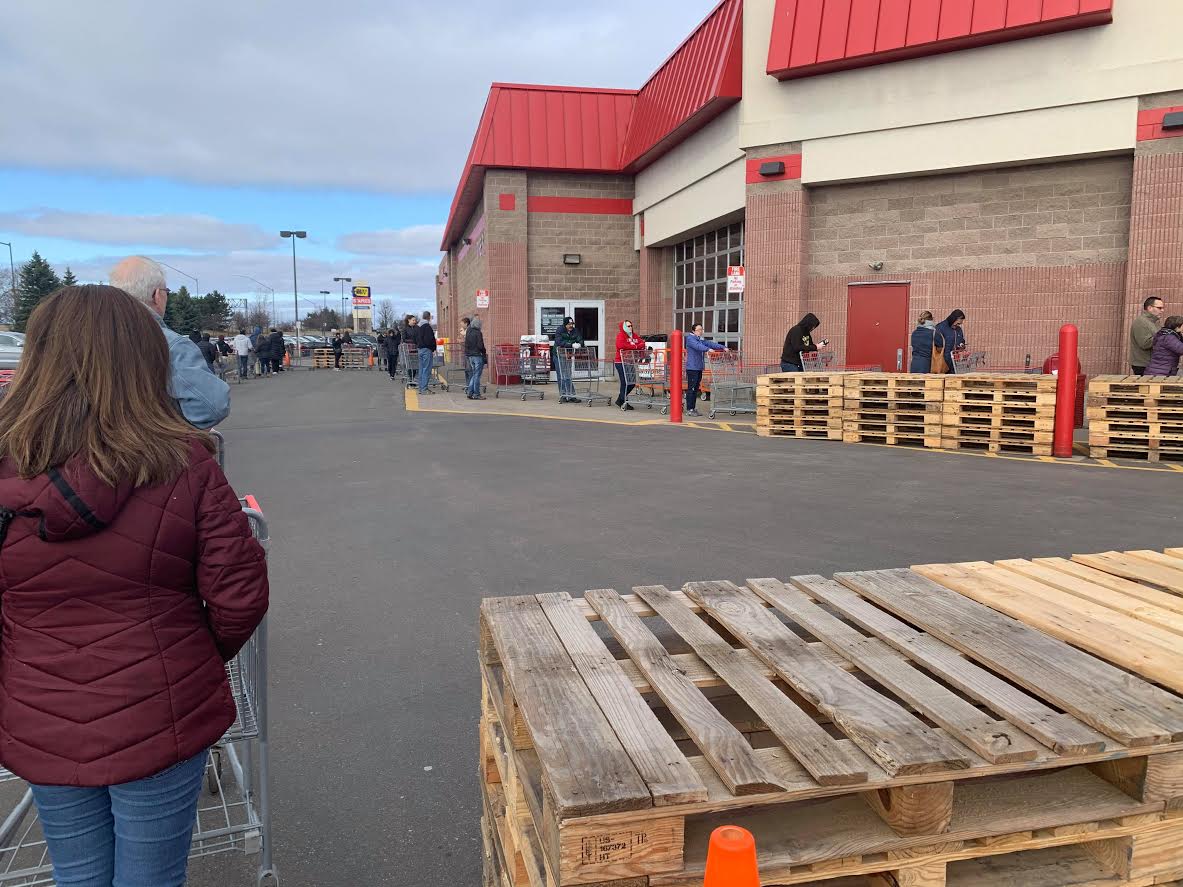April 2, 2020 - Do foreigners in Croatia feel more or less safe sitting out COVID-19 here than in their home country, and what are their experiences? A new series on TCN, with Tim Bourcier from the USA in Split as our 11th contributor.
Oxford University recently published some research on government responses to coronavirus which showed that Croatia currently has the strictest measures in the world. While inconvenient, this is a good thing in terms of reducing the spread of the virus, and I am certainly not alone in my admiration of the official Croatian handling of this crisis in recent weeks, both in terms of action and communication.
But what do other expats here think? And how does it compare with the response in their home country? Would they rather sit this one out here or there? In the first of a new series on TCN, we will be featuring expats from all over the world to see what their views are on life in corona Croatia rather than back home. So far we have heard from expats in Croatia from Romania, USA, Ireland, UK, Mexico, Argentina, Spain, Singapore and Germany. Next up, American Tim Bourcier from his home in Split.
If you would like to contribute to this series, full details are below. Now, over to Tim.
Firstly, how are you? Are you alone/with someone? Tell us a little about your situation and sanity levels.
I live alone and I have my dog. My restaurant is open for delivery, so I get out for work. I get to chat with my business partner, the staff, delivery drivers and the like, on a daily basis. I get to drive around an empty city, free of frantic local, impatient drivers and motorbikes. I do not feel really like I am in isolation, just not much to do during leisure time that I am used to doing. Let’s say my sanity is not being much more tested than usual. Maybe differently, but the amount of stress does not feel more or less, just different things to worry about. Using the playing cards analogy, let’s say the same card game, but a different set of cards.
I am a solid 7.5/10.

What do you think about the economic measures the government is taking, are they helping your business?
There are two levels of measures, so let’s look at the state and local level.
Statewise, the measures seem promising. The 3,250 HRK for employees is not helpful for a seasonal business since you had to hire the person before the season. My thought is that the employment measures were put in place to stop a run at the unemployment office for benefits and to stop a sudden decrease of money into government coffers, health insurance and pension by existing payrolls.
The share of GDP that comes from tourists is so high that I can only imagine there is relief on the way. My guess is those funds will be used to encourage hiring during a tourism slowdown and in low/no interest loans and payment deferments. The jury is still out, so we have to wait and see.
Locally, I would say the programs that have been introduced are trash. The least the local government can do is relieve businesses of certain payments. Mostly though they are postponing payments to a later date. Relief on tourist tax and postponement of local VAT is ridiculous because no one is here to accumulate these things anyway. The actions look nice in a press release, but mostly the local measures are not helpful. Basically, they are letting businesses pile up debt that they can pay back from loans, future profits or some EU relief funneled through state relief programs.
I believe there is an easy fix. The VAT was reduced from 25% to 13% in 2020. Raise that back to 20% and help small businesses through tax-increment financing. This is usually done through property tax, which does not exist in Croatia (this could help I suppose too). VAT is variable, but the state or locality could take out short-term low-interest loans from some entity that is paid through the increased tax increment. Since it is variable, the government now has an incentive to get off their butts and put their tourism agencies to work. The more purchases that take place, the faster we get back to 13%.
When did you realise that corona was going to be a big issue?
A lot later than your average person. Probably when Italy really started being inundated with infections. There was SARS, MERS, Ebola and many other illnesses that have been shut down pretty well all things considered. I am also pretty slow to panic, so just recently I realized this was going to be a long-term, international problem.
What is your impression of the way Croatia is dealing with the crisis? How safe do you feel?
I have never felt safer in my life. No one is around and everything is closed.
However, the Croatian government has not dealt with this any differently than any other country for the most part. The decree is based on what other countries have done. There has not been any ingenuity.
What is impressive is how Croatians and others living here bought into social distancing and the other measures. I am out every day and the streets are mostly empty, everyone wearing protective gear, no crowds or loitering. There are security guards at stores enforcing the number of shoppers allowed inside. A lot of credit has to be given to the people. There are always a couple of bad apples. Some people are claiming their freedoms are being encroached, but overwhelmingly people are following the rules. The local authority response has also been very well balanced.
What I will say is that enforcement measures may have occurred here too early. Without getting too technical with statistics, the ˝flatten the curve˝ initiative requires there to be a build up significant enough that it is not allowed to peak above the available resources, but kept at a level that resources are available for critical patients. There was no build up here.
As tourists arrive, I believe that many will have been exposed to the virus and have the necessary antibodies while others will arrive that are asymptomatic. Here, very few will be exposed to the virus and a (new) wave could hit.
Will the authorities keep us home until the autumn when there is a vaccine to keep us safe? If an employee of mine is exposed or infected, will they shut down the establishment for 14 days? If no one is actually infected, but exposure happens again, will they again require a 14-day quarantine? If the problem becomes too bad, will they do a more systemic shutdown in the middle of the tourist season?
Some will die from the virus if they are infected which is the terrible part of this disease. We cannot avoid exposure in the long-term though and with a vaccine scheduled after the summer, what will Croatia do if a wave occurs here during the season?
(Shopping at Costco in Flint, Michigan where Tim Bourcier is from)
Now compare that to your home country and how they are handling it. What is Croatia doing better/worse?
Well, the U.S. is a hot mess right now. My state, Michigan, has the fifth-most infections in the country. On one hand, the University of Michigan medical system is second to none in the world. However, my state has two of the poorest cities in the U.S. in Flint and Detroit. Systemically, there is a major distrust of the medical system by African-Americans and it appears many minorities and poor are going to the emergency room after being too deep into the symptoms. Combine that with limited ventilators and other resources and you have a recipe for disaster.
Croatia is doing better across the board. However, keep in mind that the Detroit metro area has more than 2.5 times the population of Croatia, in an area less than 1/5th the area of Croatia.
What about official communications from the authorities, compared to your home country?
From TCN and other portals, I am getting multiple updates daily. The U.S. is always in the spotlight, so there is always media coverage, but from a national perspective that is so broad it does not have a lot of meaning for me being in Croatia. Locally, press conferences are happening at the same pace as here in Split. The U.S. State Department sends a couple notices a week saying get out while you can if you want to get back to the U.S. Communication is the same more or less.
What's the one thing you wish you had taken with you into self-isolation.
I guess I am not really in self-isolation due to work. While I am obeying all laws and taking every precaution, my self-isolation is different. Maybe one of my friends can get a job with Wolt or Pauza….
One thing you have learned about yourself, and one thing you have learned about others during this crisis.
About me, I am pretty unfazed by the situation honestly. There are always obstacles living abroad and running a business in a foreign country. I felt the world change during 9/11, lost my job during the 2008 world economic recession, lost everything I owned during Hurricane Katrina. I have had a bunch of unfortunate circumstances in my life that emotionally I am pretty unflappable. All things considered, this is peanuts and I am predicting this will be a good season at the end of the day if nothing too drastic occurs in the economy or with a large second wave of infection.
I was surprised to see people who think they will be in their home until there is a vaccine and pushing for extraordinary authoritative measures, or on the other side of the spectrum, do not care that they are infected and could be a harm to others. Mostly though, I was impressed about how quickly a large majority of the people came together and agreed to #STFH. In all crises, people tend to go to great lengths to help others and this situation is no different. I would predict that the stories from courageous and special individuals will continue to rise as the curve flattens.
Thanks Tim, stay safe and see you on the other side.
TCN is starting a new feature series on foreign experiences of sitting out covid-19 here in Croatia compared to their home country. If you would like to contribute, the questions are below. Please also include a para about yourself and where you are from, and a link to your website if you would like. Please also send 3-4 photos minimum to This email address is being protected from spambots. You need JavaScript enabled to view it. Subject Corona Foreigner
If you would be interested to record a video version for our partners www.rplus.video please let us know in the email. Thanks and stay safe.
Foreigners Self-Isolating in Croatia: Do You Feel Safer Than in Your Home Country?
Firstly, how are you? Are you alone/with someone? Tell us a little about your situation and sanity levels.
What do you think about the economic measures the government is taking, are they helping your business? (PLEASE IGNORE IF THIS DOES NOT AFFECT YOU)
When did you realise that corona was going to be a big issue?
What is your impression of the way Croatia is dealing with the crisis? How safe do you feel?
Now compare that to your home country and how they are handling it. What is Croatia doing better/worse?
What about official communications from the authorities, compared to your home country?
What's the one thing you wish you had taken with you into self-isolation.
One thing you have learned about yourself, and one thing you have learned about others during this crisis.
TCN has recently become a partner in Robert Tomic Zuber's new R+ video channel, initially telling stories about corona experiences. You can see the first TCN contribution from this morning, my video from Jelsa talking about the realities of running a news portal in the corona era below. If you would like to also submit a video interview, please find Robert's guidelines below
VIDEO RECORDING GUIDE
The video footage should be recorded so that the cell phone is turned horizontally (landscape mode).
There are several rules for television and video news:- length is not a virtue- a picture speaks more than a thousand words
In short, this would mean that your story should not last more than 90 seconds and that everything you say in the report should be shown by video (for example, if you talk about empty streets, we should see those empty streets, etc.).
How to do it with your cell phone? First, use a selfie camera to record yourself telling your story for about a minute and a half. Ideally, it would be taken in the exterior, except in situations where you are reporting on things in the interior (quarantine, hospital, self-isolation, etc.). Also, when shooting, move freely, make sure everything is not static.
After you have recorded your report, you should capture footage that will tell your story with a picture, such as an earlier example with empty streets.
One of the basic rules of TV journalism is that the story is told in the same way as a journalist with his text. Therefore, we ask you for additional effort. Because we work in a very specific situation, sometimes you may not be able to capture footage for each sentence of the report. In this case, record the details on the streets: people walking, the main features of the city where you live, inscriptions on the windows related to the virus, etc.
The same rules apply if you are shooting a story from your apartment, self-isolation, quarantine. We also need you to capture footage that describes your story.
When shooting frames to cover your reports, it is important that you change the angle of the shot (in other words, shoot that empty street from several angles). Also, when shooting a detail, count at least five seconds before removing the camera to another detail.
The material should be about 5 minutes long (90 seconds of your report + frames to cover your story).
After recording everything, send us to Zagreb, preferably via WeTransfer to This email address is being protected from spambots. You need JavaScript enabled to view it.




